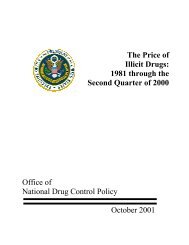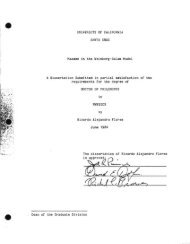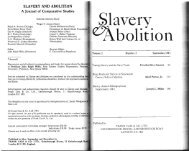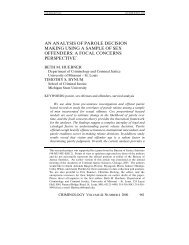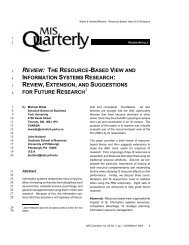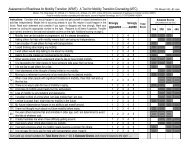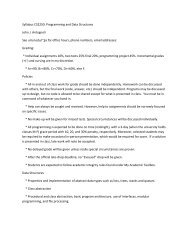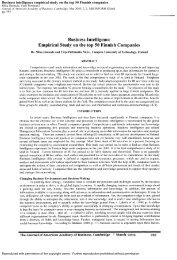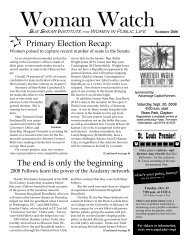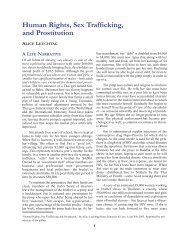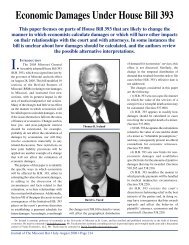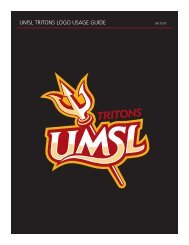MicroStrategy 7 Administrator Guide
MicroStrategy 7 Administrator Guide
MicroStrategy 7 Administrator Guide
You also want an ePaper? Increase the reach of your titles
YUMPU automatically turns print PDFs into web optimized ePapers that Google loves.
C<br />
O<br />
N<br />
C<br />
E<br />
P<br />
T<br />
S<br />
You can schedule reports according to two types of criteria:<br />
• time-triggered criteria<br />
• event-triggered criteria<br />
When a scheduled report finishes executing, a message appears in the user’s Inbox<br />
alerting him that the report is ready to be viewed. Users simply double-click the<br />
message to see the report. If the request was not completed successfully, users can<br />
right-click the message and choose Details to see the error message.<br />
Time-triggered report scheduling<br />
When a report is set to a time-triggered schedule, you define a specific date and<br />
time at which the report is to be run. You may also create recurring time-triggered<br />
schedules, which allow users to run a particular report every Sunday night, for<br />
example.<br />
Time-triggered schedules are especially important in systems where the database<br />
refresh rate is very high or if the refresh cycle is very reliable and regular. Timetriggered<br />
schedules are also used to allow large, resource-intensive reports to run<br />
at off-peak times, such as overnight or over a weekend.<br />
For example, in a particularly large or busy system, you may wish to limit the<br />
number and complexity of reports users may execute during the day. In this case,<br />
you should create schedules to allow users to schedule resource-intensive reports<br />
to run at a time when <strong>MicroStrategy</strong> Intelligence Server is not particularly busy,<br />
usually overnight or at some other off-peak time.<br />
You may also choose to create recurring report execution schedules. For example,<br />
if a database load occurs every Friday night, a user may request a report to be<br />
executed each time the database is loaded, perhaps every Saturday morning.<br />
Event-triggered report scheduling<br />
You can create schedules based on the occurrence of an event. When an event is<br />
triggered, all reports tied to that event are submitted.<br />
You define the set of relevant events and create the event-triggered schedules from<br />
which users may select when scheduling a report.<br />
7HVWLQJÃHQYLURQPHQWV<br />
In a testing environment, you can manually trigger events using the Event<br />
Viewer. To learn about the Event Viewer, see the following topic in the Interfaces<br />
section:<br />
Event Viewer<br />
46 Chapter 6 Scheduling



